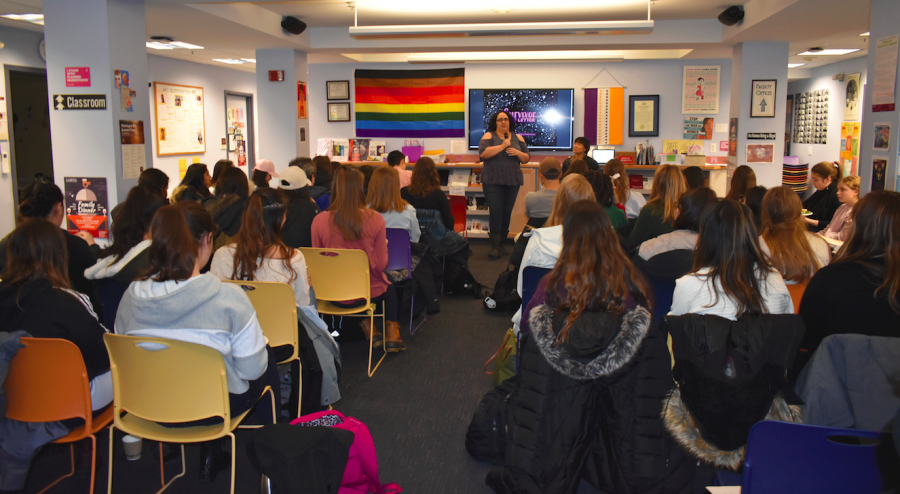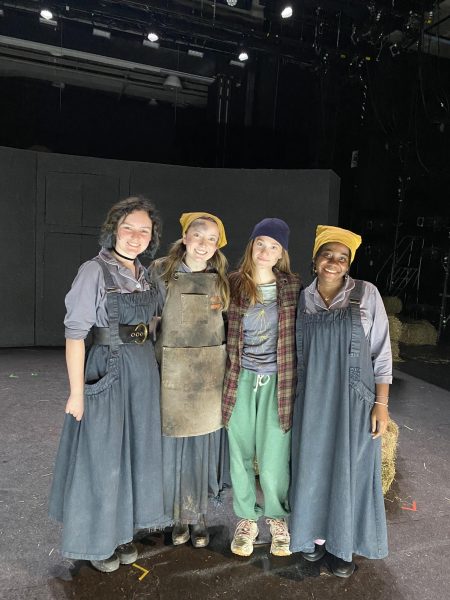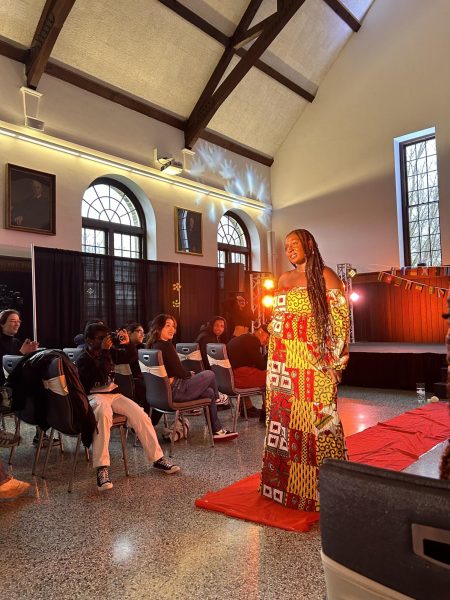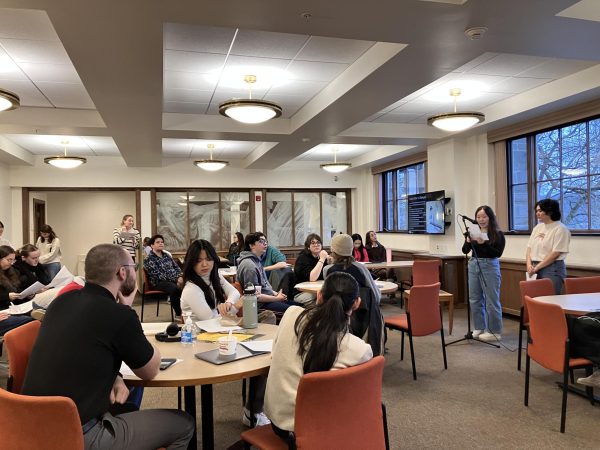Survivor Love Letters Teach Importance of Self Healing
On Thursday, January 24, the Center for Women’s Studies co-hosted filmmaker and artist Tani Ikeda for the first brown bag of 2019. After allowing attendees some time to enjoy the food catered by Curtain Call, Odette Marie Rodriguez, program coordinator for the Center for Women’s Studies, stood up and began the presentation.
Following a thoughtful acknowledgement to the people of the Oneida Nation whose land Colgate is built on, Rodriguez began her introduction of Ikeda. Not only is Ikeda an Emmy award-winning director and founder of the imMEDIAte Justice nonprofit organization focusing on female artists, but she is also the creator of the Survivor Love Letter movement, which empowers sexual assault survivors and allies to find a community of love, healing and celebration.
In her calming, steady voice, Ikeda began the conversation, asking the audience to log onto Twitter and write themselves a survivor love letter. After a few minutes, she asked us to share what we wrote. People’s letters varied from sending messages of support to survivors to expressions of their own healing journeys. Any tension in the room vanished as people allowed themselves to be vulnerable and strong in a place of support and love.
The Survivor Love Letter movement began on Valentine’s Day in 2012 when Ikeda posted a love letter to herself on Twitter on the anniversary of her assault with the hashtag #SurvivorLoveLetter. The movement quickly spread through social media and went viral as survivors and allies used the hashtag to express their love and support for the survivors in their lives.
“It became a way to show support for survivors in a very public way,” Ikeda said.
The surge of support for the hashtag allowed it to blossom into a larger movement, which today involves the creation of murals, letter writing workshops, live performances and much more.
Ikeda said that she practices her own self-love in the form of writing love letters to herself quite often, and is very open about the fact that her own healing journey is ongoing. Through the Survivor Love Letter movement, Ikeda emerged from the isolated and silent spaces that used to confine her. Now, she has found a community of people who help each other navigate their healing journeys and celebrate how strong and loved they are.
Even though Ikeda now has this strong community, she emphasizes that healing can be a cyclical process with highs and lows. She doesn’t portray herself as someone who has healed and no longer struggles. Instead, she is open about her own vulnerability and offers hope to people who recognize their struggle in hers, reminding them that while healing may be hard, they are not alone.
“I thought it was refreshing how honest she was regarding the process of healing,” sophomore Allyssa Ark said. “I think that’s pretty rare.”
Ikeda also explained her complicated and heartbreaking attempt to receive retributive justice, only to find that she felt exhausted and pained at the end of the long process that resulted in her losing the court case to her offender. Her own art and films were used against her in court and she realized that if she were to ever feel whole again, she would have to find another way of healing. Through the community she found among survivors and allies, she was able to start creating and healing again.
“I met people who saw the light in me so much that I began to see it myself,” Ikeda said.
Using social media to start a movement with the potential to help and support such a large and marginalized group of people has had endless positive results, Ikeda said. Helping people realize that their stories matter and that their pain can be turned into art through the ongoing mural projects allows survivors to bring their feelings to the light and start to grow again.
Ikeda took time to read her love letters to the audience and showed a film that she made following her assault. Both of these creative outputs demonstrated the intense emotion and gradual healing she continues to experience. She also spoke about the meaning behind the murals that have been created alongside the Survivor Love Letters campaign. Ever since the #MeToo movement, national attention has focused on cisgender white women sharing their experiences. Ikeda expressed that this movement tends to leave out a massive group of survivors, specifically queer, transgender women of color. This is why these women are the ones featured on the murals. They deserve to be held up and celebrated just as much as any other survivor, and the Survivor Love Letter movement strives to include them and all other survivors in their journey of growth and love.
“Dear survivor, to love yourself is to become free,” Ikeda said, inspiring people to overcome our challenges and continue healing ourselves.
Contact Sasha Balasanov at [email protected].







